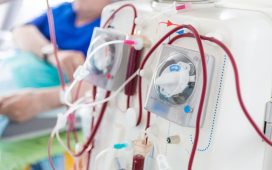Highest proportion of personal health information, identifiable information found at doctors’ offices
TUESDAY, March 20, 2018 (HealthDay News) — A considerable amount of personal health information (PHI) and personally identifiable information (PII) was found in the recycling at five Canadian teaching hospitals, according to a research letter published in the March 20 issue of the Journal of the American Medical Association.
Joshua Kapil Ramjist, M.D., from the University of Toronto, and colleagues conducted a recycling audit of five teaching hospitals in Toronto from November 2014 to May 2016. All hospitals had established PHI policies. For paper disposal, all hospitals had bins for recycling and garbage as well as secure shredding receptacles for confidential information. At each site, all recycling was collected at least three times per week over four weeks from predesignated locations.
A total of 591.6 kg of recycling was recovered, including 2,687 documents with PII. The researchers found that 802 of these items contained information that was considered low sensitivity, 843 medium sensitivity, and 1,042 high sensitivity. At all hospitals, PII and PHI were found in the recycling. The most items (1,449) were recovered at physicians’ offices, and physicians’ offices also had the highest proportion of PHI and PII recovered (15.79 PHI items/kg and 18.41 PII items/kg, respectively) relative to weight sampled. The most frequent types of PII inappropriately discarded were clinical notes, summaries, and medical reports.
“Elimination of any alternatives to nonconfidential disposal of discarded paper (irrespective of content) in areas of clinical activity may be an effective, albeit expensive strategy to reduce the risks of paper-based privacy breaches,” the authors write.
Abstract/Full Text (subscription or payment nay be required)
Copyright © 2018 HealthDay. All rights reserved.








